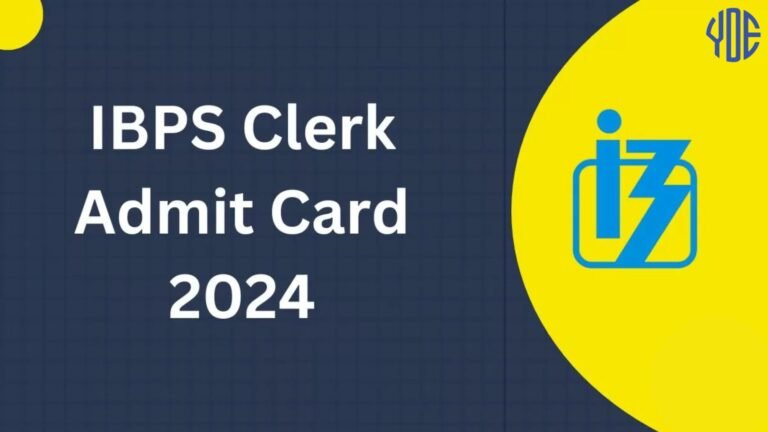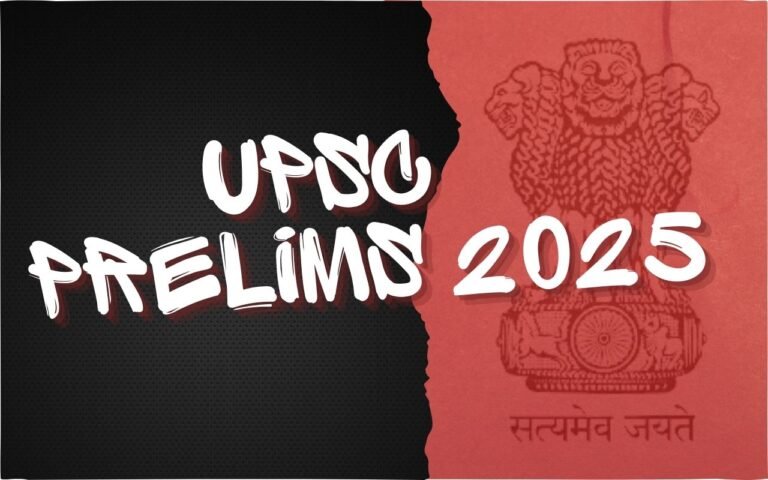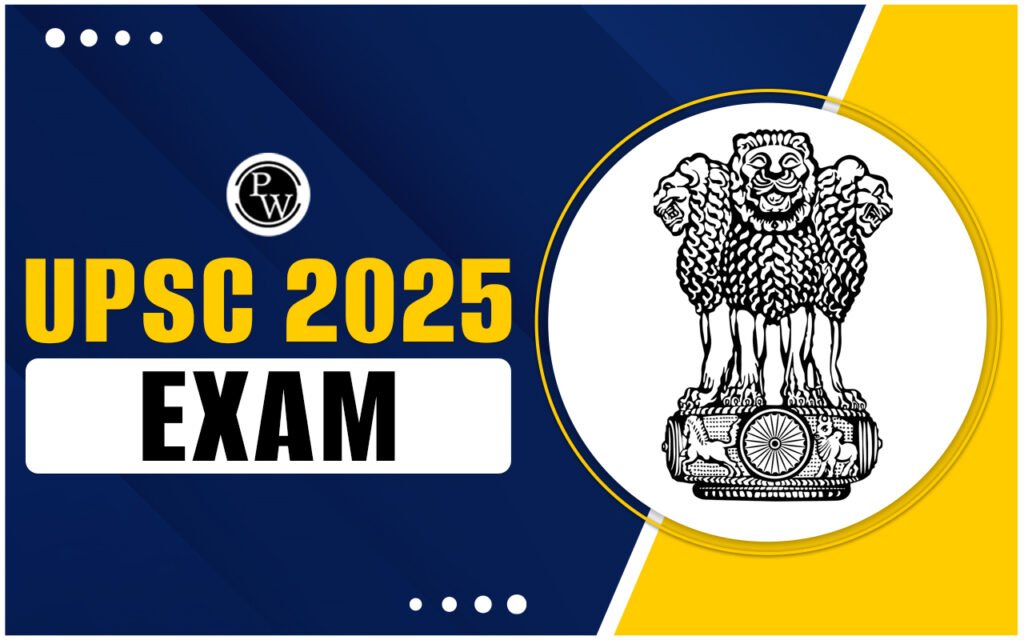IBPS Clerk: IBPS is the authoritative body for assessing candidates for recruitment in public sector banks in India. It conducts online examinations for recruiting candidates for clerical cadres in 11 public sector banks all over the nation. IBPS is based in the city of Mumbai, India. The institute conducts several exams for different positions in public sector banks such as:
IBPS Clerk | Indian Banking Personnel Selection
IBPS Clerk: IBPS is the authoritative body for assessing candidates for recruitment in public sector banks in India. It conducts online examinations for recruiting candidates for clerical cadres in 11 public sector banks all over the nation. IBPS is based in the city of Mumbai, India. The institute conducts several exams for different positions in public sector banks such as:
- IBPS Clerk Exam for clerical positions
- IBPS PO Exam for Probationary Officers
- IBPS SO Exam for Specialist Officers
- IBSC RRB Exam for Officers and office assistants in Regional Rural Banks
The vision of IBPS is to develop and implement world-class systems and processes for the assessment and selection of candidates in a fair manner for client organization and conducting relevant research and publicizing the results.
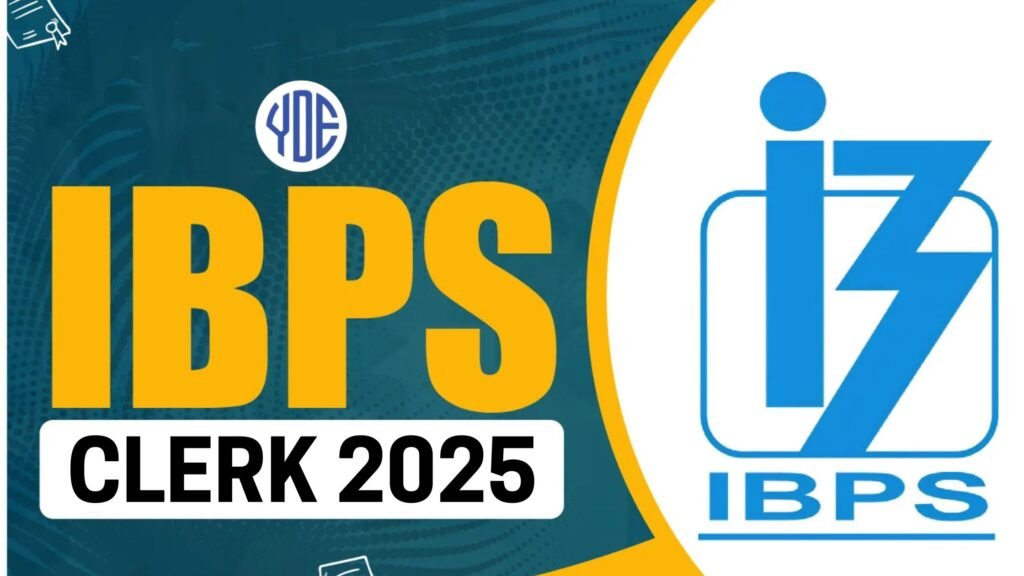
IBPS mainly conducts exams online mode it accepts applications for online exams at its official website and the exams are conducted at various locations all over the country. Mainly all the public sector and rural banks accept the IBPS scores except RBI. Some of the banks which accept the IBPS scores for recruitment are named below:
- Allahabad Bank
- Bank of Baroda
- Bank of India
- Central Bank of India
- Dena Bank
- Indian Overseas Bank
- Oriental Bank of Commerce
- Punjab National Bank
- Union Bank of India
- UCO Bank
IBPS Clerk- It is a CWE- Common Written Examination conducted by IBPS- Institute of Banking Personnel Selection. This exam is conducted for the selection or recruitment of candidates to nationalized banks in India to fill vacancies for clerical-level jobs. IBPS Clerk exam is conducted every year and by qualifying for this exam, candidates will be able to seek jobs of the critical post in 11 public sector banks all over the nation.
CWE- Common Written Examination is a pre-requisite for the selection of candidates for clerical cadre posts in public sector banks. The candidates who are selected for the clerical cadre posts will need to be on probation for 6 months. After completing the period, candidates are required to appear for the assessment test/performance review for confirmation as permanent employees. The IBPS Clerk exam is conducted on two levels namely- Preliminary and Main Exams. Every year thousands of vacancies are filled through the IBPS Clerk exam.
Eligibility Criteria
In competitive exams like IBPS Clerk, eligibility criteria are one of the most crucial parameters. Before filling out the application form, students should check the eligibility criteria which include age limit criteria, academic qualification, relaxation, and other necessary details. The candidates who do not fulfill the eligibility norms of IBPS clerk will not be allowed to participate in the recruitment process. The eligibility criteria for IBPS Clerk are segregated into three stages:
- Nationality
- IBPS Clerk Age Limit
- Educational Qualification
IBPS Clerk Age Limit Criteria
Candidates must need to fulfill the prescribed IBPS Clerk age limit for getting through the selection process. Candidates will be able to take the exam as many times by taking into consideration the upper age limit.
- To appear for this exam, the minimum age of the candidates must be 20 years and the maximum age must be 28 years.
- Candidates who have born earlier than 02/09/1993 and after 01/09/2001 will not be able to appear for the IBPS exam.
IBPS Clerk Age Relaxation
The candidates belonging to the reserved category are provided with an age relaxation on the upper age limit. The age relaxation varies for different categories such as:
- Candidates belonging to SC/ST category are provided with an age relaxation of 5 years
- OBC category candidates are provided with an age relaxation of 3 years.
- The 1984 riots affected people are provided with an age relaxation of 5 years
- The divorced women, widows, and women who have legally separated from their husbands and have not remarried are provided with an age relaxation of 9 years.
- The candidates with disabilities are provided with an age relaxation of 10 years.
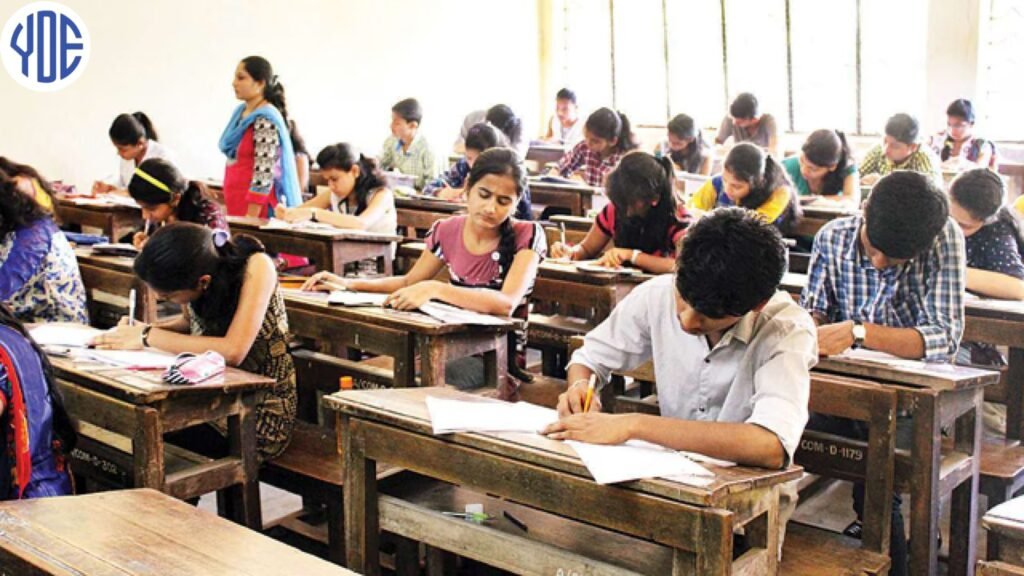
IBPS Clerk Eligibility Criteria (Nationality)
It is also necessary for the candidates to fulfill the eligibility criteria for nationality to be able to get through the selection process. The nationality eligibility criteria are in accordance with the rules stated by the Indian Government. The nationality eligibility criteria for IBPS Clerk are mentioned below:
- Candidates must be citizens of India
- They should be subject to Nepal or Bhutan
- A Tibetan refugee who came to India before 1 January 1962 with the intention of permanently settling in the country
- A candidate of Indian origin who has migrated from Pakistan, Burma, Sri Lanka, East African countries of Kenya, Uganda, the United Republic of Tanzania Zambia, Malawi, Zaire, Ethiopia, and Vietnam with an intention to permanently settle in India is eligible to apply.
Educational Qualification for IBPS Clerk
It is necessary for the candidates to fulfill the IBPS Clerk educational qualification percentage before filling up the application form. Below mentioned is the educational qualification for the IBPS Clerk exam.
- Candidates should have completed graduation in any discipline from a college or university recognized by the government of India.
- Candidates who are having any equivalent qualification can also apply
- Candidates should also have to operate as well as working knowledge of computer
- Candidates should have a Degree/ Diploma/ Certificate in Computer Operations/ Language in computer or they should have studied Computer/ Information Technology in their school, institute, or college.
- Other than the above-mentioned academic qualification, candidates should also have proficiency in the language of the state or region in which they are applying.
Selection Process
The selection process for IBPS Clerk is a rigorous process that requires a lot of hard work. Candidates should know the selection process earlier as it will help them to understand different stages so that they can start their preparation accordingly. Candidates should frame an accurate strategy for all the stages of the IBPS selection process. The selection stages involved in the IBPS Clerk are named below:
- Preliminary Exam
- Mains Exam
- Language Proficiency Test
Preliminary Exam Phase
Candidates should be well-prepared and have complete knowledge of the IBPS Clerk selection process for getting recruited through IBPS Clerk. Although the marks obtained in the preliminary stage will not be contributed to the final results it is necessary for the candidates to qualify for this stage. In the preliminary exam, the sectional timing of 20 minutes has been introduced for each section. Some of the necessary details regarding the IBPS Clerk preliminary exam are written below:
- The exam will include sections like English Language, Reasoning Ability, and Numerical Ability
- Sectional timings for each section is 20 minutes
- The English language section consists of a total of 30 questions for a maximum of 30 marks.
- The reasoning ability consists of a total of 35 questions for a maximum of 35 marks and the numerical ability section consist of a total of 35 questions for a maximum of 35 marks.
- It is necessary for the students to clear all the sections as well as the overall cutoff for becoming eligible for the next stage.
Do you check 3 Golden rule of accounting
Main Exam Phase
This stage of the IBPS Clerk selection process consists of immense competition. Candidates appearing for this stage should enhance and intensify their preparation strategy. It is necessary for the candidates to complete the exam within the sectional time frame. The marks secured in the IBPS Clerk exam will be considered in the final selection process. Some of the necessary details regarding the Main exam phase are mentioned below:
- The sections in this exam include Reasoning Ability and Computer Aptitude, General English, Quantitative Aptitude, and General Awareness/ Financial Awareness.
- The total duration of this exam is mainly 160 minutes
- The reasoning ability and computer aptitude consist of a total of 50 questions for 60 marks and its duration is 45 minutes
- General English section will consist of a total of 40 questions for 40 marks and its duration is 35 minutes
- The quantitative aptitude section consists of a total of 50 questions for 50 marks and its duration is 45 minutes.
- The general awareness / financial awareness section consists of a total of 50 questions for 50 marks and its duration is 35 minutes
- As per its marking scheme ¼ marks will be deducted for each incorrect answer.
Language Proficiency Test
Candidates should have complete knowledge of the language proficiency test to be able for getting through the IBPS Clerk selection process. Below mentioned are some of the necessary details regarding the language proficiency test.
- In the language proficiency test, the participating organizations will verify the candidate’s proficiency in the local language of the concerned state or union territory. Candidates should be able to read, write, and speak the concerned local language.
- In this test, candidates can be asked to write down a passage or a few questions in the local language.
- The participating organization of IBPS Clerk can also disqualify the candidates who will not be able to qualify for the language proficiency test.
Final Selection Process
The candidates who have successfully qualified for all the stages of the IBPS Clerk exam will be able to get through the final selection process for IBPS Clerk. The final result will be concluded by the scores obtained in the mains and language proficiency test; therefore, it is essential for the students to qualify for all the stages with valid scores to get selected. Approximately 11 banks are participating in the IBPS selection process.
Syllabus for IBPS Clerk
The syllabus of the IBPS Clerk exam is segregated into two sections- prelims and mains. The prelims syllabus consists of subjects like English, Numerical Ability, and Reasoning and the main syllabus includes subjects like Quantitative Aptitude, English Language, Reasoning Ability, Computer Aptitude, and General Awareness. The syllabus will assist the candidates in getting a vibrant depiction of the exam. Below mentioned are some of the details regarding the IBPS Clerk syllabus.
Syllabus for Prelims
English
The questions included in this section are expected to be of an easy to moderate level. Candidates should practice this section thoroughly and attempt all the questions mindfully. The English section has 30 marks which are or be solved within a duration of 20 minutes. It is necessary for the candidates to have a deep knowledge of the IBPS Clerk English syllabus for cracking the exam within the sectional time limit easily. The IBPS Clerk English syllabus for prelims includes the topics mentioned below:
- Reading Comprehension
- Error Detection/ Sentence Correction
- Fill in the Blanks
- Error Correction
- Para jumbles
- Cloze test
Numerical Ability
The questions asked in the numerical ability syllabus for IBPS Clerk consist of questions ranging from basic to moderate level. The numerical ability section carries a total of 35 marks and there will be a total of 35 questions. Some of the topics included in the Numerical ability sections are named below:
- Number Series
- Simplification/ Approximation
- Simple interest and Compound Interest
Reasoning
The syllabus of reasoning is designed to screen the candidates on the basis of logical thinking and mental ability. Candidates should practice hard to complete this section within the stipulated time frame. Some of the topics included in the reasoning section are named below:
- Inequality
- Sitting Arrangement/Puzzles
- Alphanumeric/ Number Series
- Miscellaneous
- Syllogism
- Coding-Decoding
- Data Sufficiency
Syllabus for Mains
The candidates who have successfully qualified for the prelims exam will be able to appear for the mains exam. Candidates should navigate the syllabus for IBPS Clerk Mains for performing well in the exam. The main exam mainly consists of four subjects such as:
- Quantitative Aptitude
- English Language
- Reasoning Ability
- General Awareness
English Language
The section on the English language assesses the candidates on the basis of their knowledge of grammar and vocabulary. Some of the topics included in the English language section are mentioned below:
- Reading Comprehension
- Cloze Test
- Spotting Errors
- Sentence Improvement
- Para Jumbles
- Fill in the Blanks
- Sentence Connectors
- Odd One Out/ Theme-based questions
- Paragraph/ Sentence Completion
- Vocabulary-based questions
Quantitative Aptitude
In section, candidates need the right amount of preparation and accurate strategy to get qualified. In quantitative aptitude50 questions are to be solved within the duration of 45 minutes. Some of the major topics covered in the IBPS Clerk syllabus for Quantitative Aptitude are mentioned below:
- Problems with Ages
- Profit, Loss, and Discount
- Averages
- Ratio and Proportion
- Percentages
- Simple and Compound Interest
- Time and Work
- Mixture and Allegations
- Pipes and Cisterns
- Time, Speed, and Distance
- Partnership
- Boats and Streams
- Probability
- Mensuration
- Data Interpretation
Reasoning Ability and Computer Aptitude
Some of the major topics covered in reasoning ability and computer aptitude are mentioned below:
- Puzzles
- Seating Arrangement
- Inequality
- Syllogism
- Input-Output
- Coding-Decoding
- Order and Rankings
- Direction-based problems
- Blood Relations
- Series-based questions
General Awareness
Candidates can prepare for the general awareness section by updating themselves with news and current scenario. Some of the necessary details regarding the questions asked in the General Awareness section are discussed below:
- Mainly, Questions will be asked regarding current affairs and banking awareness topics.
- Questions may also be asked on Books and authors, Currencies, Important Places, Awards, Headquarters, Prime Minister’s Schemes, Important Days, etc.
- Candidates are advised to go through the GK updates of at least the last 4 to 5 months
- Candidates should also prepare for the GK static part as well.
Do click to know the Top Engineering Colleges in UP
Hopefully, all the above-written details regarding IBPS Clerk will help you to gather the necessary facts and information.



